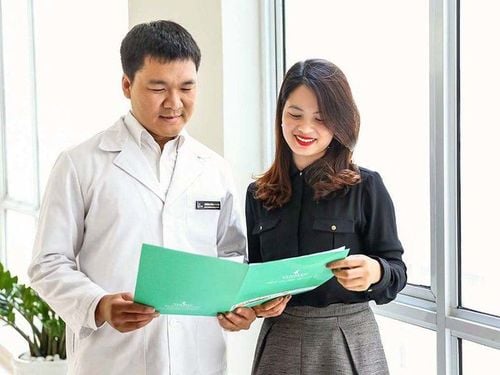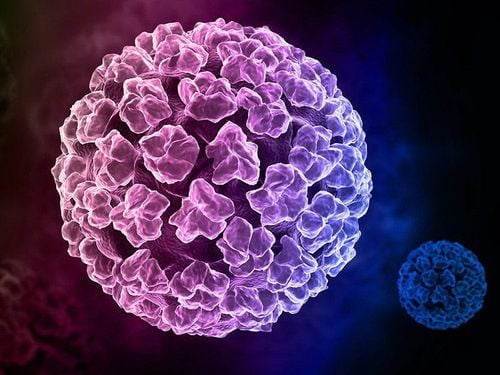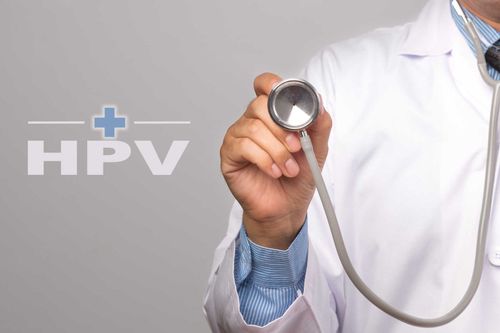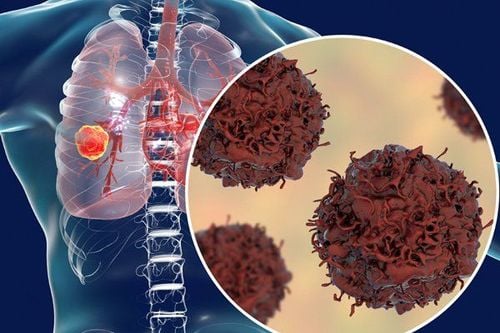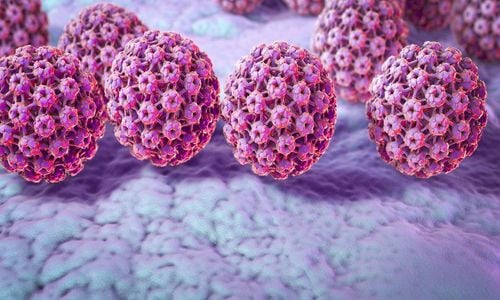This is an automatically translated article.
The article was professionally consulted by Specialist Doctor I Le Thien Quang - Internal Oncologist - Department of Examination & Internal Medicine - Vinmec Danang International General Hospital.Cancer screening by genetic mutation screening is carried out at the Gene Technology Center, Vinmec International General Hospital. Patients are consulted in detail about the relationship between genes and cancer, considering family history and related factors to estimate the risk of disease, genetic risk for the next generation.
1. What is cancer?
Cancer is the uncontrolled growth of abnormal cells, leading to invasion and destruction of normal tissue structures of the body, thereby forming tumors.Tumors can be benign (non-cancerous) or malignant (cancerous). While benign tumors do not invade the organs and surrounding tissues of the body, malignant tumors do develop. If these cells are not treated or treated in time, they can invade beyond their original range and into surrounding tissues, becoming invasive cancer.
2. What are the warning signs of cancer?
Some of the following changes in the body can be a sign of cancer:Change in stool quality or urination habits Have sores that do not heal Unusual bleeding Appearance of thickened tissue under the skin, lumps lumps in the breast or other parts of the body Skin changes, including warts or moles that have changed in color or size Indigestion or trouble swallowing Coughing hoarseness Unexplained weight loss Extreme fatigue

3. How to reduce the risk of cancer in general?
To reduce your risk of cancer, you should start making the following lifestyle changes:Don't smoke. Limit sun exposure, use sunscreen regularly Limit the amount of alcohol, to no more than one drink per day. Limit the number of sexual partners. Maintain an ideal weight (body mass index (BMI) can be used to determine an appropriate weight). Maintain a healthy diet and limit the intake of processed meats. Add fruits and vegetables every day. Exercise regularly every week. Cancer screening tests and vaccinations should be done as recommended by your doctor.
4. Common types of cancer in women
Currently there are many different types of cancer, the most common are:Breast cancer Lung cancer Colon cancer Endometrial cancer Skin cancer Ovarian cancer Cervical cancer Vulvar cancer
5. How to reduce the risk of breast cancer
Breast cancer mostly occurs in women, especially in older women. To prevent as well as reduce the risk of disease, there are several methods that can be taken such as maintaining an ideal weight, exercising regularly, maintaining a healthy lifestyle: limiting or avoiding alcohol .In addition, it is advisable to focus on breast cancer screening to detect cancer early, so that it can be treated promptly and easily. Experts recommend that women in their 40s get a mammogram to screen for breast cancer. Screening should be done regularly every 1-2 years until age 75. Women at high risk for breast cancer, such as those with BRCA1 and BRCA2 gene mutations, should be screened more often.
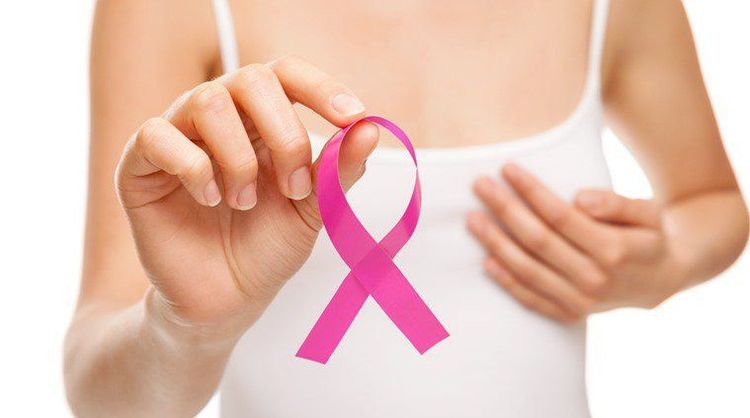
6. How to reduce the risk of lung cancer?
The most common cause of lung cancer is smoking. The best way to protect against lung cancer is to not smoke or be exposed to tobacco smoke. The risk of lung cancer is reduced if smoking is stopped.Women aged 55-80 years with a history of smoking should be screened for lung cancer annually. Screening tests are usually recommended for women who are heavy smokers or have been smokers in the past.
7. How to reduce the risk of colon cancer?
Most colon cancers develop from benign polypoid polyps. Routine screening can help detect and remove polyps before they become cancerous. The American Cancer Society recommends that the ideal age to have a colon cancer screening test is at least 45 years old. These tests include:Colonoscopy sigmoidoscopy X-ray Virtual colonoscopy Stool occult blood test Stool DNA test In addition, to reduce the risk of colon cancer, should limit eating processed and red meat, actively eat vegetables and fruits every day, avoid stimulants.
8. How to reduce the risk of endometrial cancer
Endometrial cancer is also known as endometrial cancer. While most of these cancers cannot be prevented, there are a few things you can do to reduce your risk, such as being proactive and screened for endometrial cancer, eating a healthy diet. , keep a healthy body weight, exercise every day.9. How to reduce the risk of skin cancer?
The risk of skin cancer can be reduced by taking the following steps:Avoid going out in the sun, especially between 10 a.m. and 4 p.m. Use a sunscreen with both UVA and UVB protection and factor Sun protection (SPF) of at least 30. Wear UV-blocking sunglasses, wear sunscreen. Watch for changes in skin mole size and color Check your skin regularly.
10. How to reduce the risk of ovarian cancer?
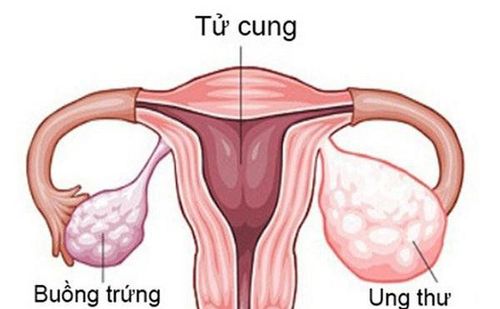
Women at high risk for ovarian cancer including those with a history of ovarian cancer, BRCA1 and BRCA2 gene mutations, or Lynch syndrome can use oral contraceptives or consider surgical removal of the ovaries. and fallopian tubes to reduce the risk of disease.
11. How to reduce the risk of cervical cancer
Reduce your risk of cervical cancer with measures such as a Pap test to detect cervical cancer early, and the HPV vaccine to fight cancer-causing viruses. In addition, patients should avoid smoking, use condoms when having sex to prevent HPV infection.12. How to reduce the risk of vulvar cancer
Pay attention to the common symptoms of this type of cancer such as itching, burning of the vulva; thickened or lumpy labia; pain during sex or urination. Reduce your risk of vulvar cancer by getting the HPV vaccine, not smoking, and practicing safe sex.Early cancer screening is a safe measure in timely detection and treatment of all types of cancer, reducing treatment costs and especially reducing mortality in patients. Vinmec International General Hospital always deploys and introduces customers to high-tech cancer screening and examination packages to help with gene testing, imaging, and biomarkers for early tumor detection.
Only one gene test can assess the risk of 16 common cancers in both men and women (lung cancer, colorectal cancer, breast cancer, cervical cancer, cancer) stomach, prostate cancer,....) Early detection of precancerous signs through imaging, endoscopy and ultrasound. Simple operation: Each customer will be taken 2ml of blood in a purple-cap tube containing EDTA anticoagulant, stored at 2 - 8 degrees Celsius and transported to the Cancer Research Department within 24 hours. Sampling completion time is only 15 minutes. Genetic test results will be available in 30 days. A team of well-trained specialists, especially in oncology, are capable of handling cancer cases. With facilities, advanced and modern medical equipment and a team of doctors with deep expertise and experience. At Vinmec, the examination process becomes fast with accurate results, saving costs and time for patients.
Please dial HOTLINE for more information or register for an appointment HERE. Download MyVinmec app to make appointments faster and to manage your bookings easily.
Articles refer to the source Acog.org





